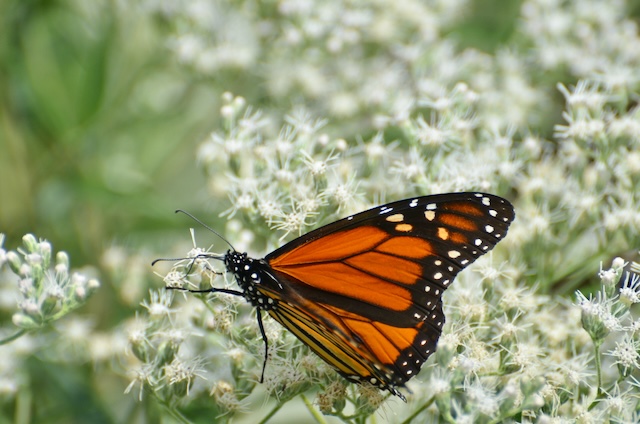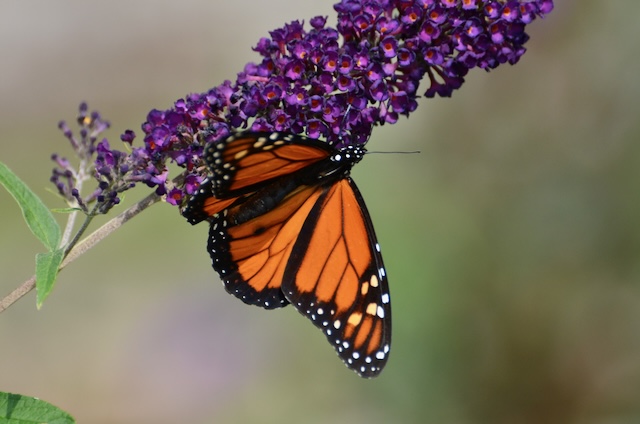Click for ‘Silence’ movie review and thoughts.
For this year’s Reading the Season, I’ve chosen Shusaku Endo’s masterpiece Silence. Unlike previous years, it’s not as pleasing and exulting a read at Christmas time. Rather, it’s unsettling and disturbing. It will interfere with your festive mood. It presents an excruciating dilemma that we hope we may never need to confront, and a question that more likely for us to face: Where is God during our suffering?

Why so unpleasant a read at this time? We’re all busy with our festivities. Who would want to think about such a somber question? Director Martin Scorsese thinks it’s seasonal; Dec. 23 is the day his adaptation of Silence will be released in North America. Mind you, before showing here, it will first premiere at the Vatican. What a diversion of Christmas over there.
Thanks to Scorsese, I dug out Endo’s book and reread it. This time around, it’s even more disturbing for me. However, I also see the light seeping through the cracks of a broken human scene. I sure hope Scorsese’s film — twenty-five years brewing in the director’s heart — can lead to some quiet meditation amidst the cacophony bombarding us these days.
Historical Note
First off, very crucial before reading Silence is to establish a frame of reference; this is furnished by the Historical Note at the beginning of the book. Christianity was introduced to Japan by Francis Xavier in 1549. It was very well received at that point, despite an expulsion order later in 1587 by the Shogun Hideyoshi and the subsequent crucifixion of twenty-six Japanese Christians and European missionaries. By 1600, there were an estimated 300,000 Christian converts living in Japan.
By the time the second expulsion order was issued in 1614, however, the Christian Church in Japan was driven underground. Warlord Tokugawa Ieyasu was resolute in wiping out all traces of Christianity that from 1614 to 1640, an estimated five to six thousand Christians were killed. He later found out martyrdom wasn’t as effective an eradication measure as forced apostasy, especially with leaders of the faith, so torture was widely used towards that end.

In 1632, the Catholic world was shocked to learn that the stalwart leader of the Jesuits mission in Japan, Father Christovao Ferreira, had disavowed his faith and become an apostate after being tortured at ‘the pit’ in Nagasaki. No news of him came after that.
Upon this setting Endo begins his story. The historical novel describes the journey of one fervent young priest from Portugal, Father Sebastian Rodrigues, who has had the privilege to be taught and mentored by Father Ferreira years before. Upon hearing Ferreira’s apostasy, and with the reluctant approval of the Jesuit Superior, Rodrigues and fellow priest Father Francisco Garrpe board a ship and sail all the way to Japan to look for their beloved teacher and to investigate the situation. They have been forewarned, the magistrate Inoue is ruthless.
While still on the ship, the priests encounter Kichijiro, a sly, cowardly, and ambiguous figure who later will wade on shore ahead to guide them to some hidden Christians. For a while, the two Fathers have to hide themselves in a hut on a mountain during the day, and minister to the needs of Japanese believers who, despite the danger, come to seek them out for spiritual matters at night.
Later Kichijiro leads them to a nearby island to meet with more hidden believers. To the welcoming relief of the villagers, the fathers secretly conduct mass and baptism despite the risks. The evasive Kichijiro hangs around like a phantom nemesis.
The people suffer greatly under the rule of magistrate Inoue, yes, that Inoue who Rodrigues was forewarned. He extracts from the poor peasants harsh revenues and infuse the utmost fear into those of the Christian faith with his deathly measures. Rodrigues observes that “The persecutions of Christians make their faces expressionless. They cannot register on their faces any sorrow —nor even joy. The long years of secrecy have made the faces of these Christians like masks. This is indeed bitter and sad.”
Never before has Rodrigues felt so deeply about the meaningfulness of his mission:
“… like water flowing into dry earth … For the first time they have met men who treated them like human beings. It was the human kindness and charity of the fathers that touched their hearts.”
But such a firm conviction begins to shatter when Rodrigues comes closer and closer to the reality of persecution. No, not just of his own, but those of the Japanese peasants, his flock. Many are faithful to the end. When discovered, they would be tied on trees in the shape of a cross at the seashore, the rising tide slowly consumed their bodies after two or three days.
The ultimate punishment is ‘the pit’. Believers are tied up and suspended upside down above a pit. Blood would flow out of their eyes, ears, nose and the slits on the neck. They would be literally drip dry into a slow death through several days.
 A way out of such torture is to trample on the fumie. The fumie is a wooden plaque with a copper plate on which the image of Christ was artfully engraved. A person’s willingness to trample on the fumie is Inoue’s way of testing if one belongs to the outlawed Christian religion. It is also a convenient way to turn a believer into an apostate upon the threat of torture and death. One only needs to put one’s foot on the fumie, trample or even just step on it, then one can be released immediately, a most easy and convenient ‘formality’ to show one’s denunciation of faith. This was what happened to Father Ferriera.
A way out of such torture is to trample on the fumie. The fumie is a wooden plaque with a copper plate on which the image of Christ was artfully engraved. A person’s willingness to trample on the fumie is Inoue’s way of testing if one belongs to the outlawed Christian religion. It is also a convenient way to turn a believer into an apostate upon the threat of torture and death. One only needs to put one’s foot on the fumie, trample or even just step on it, then one can be released immediately, a most easy and convenient ‘formality’ to show one’s denunciation of faith. This was what happened to Father Ferriera.
The officials would say: “I’m not telling you to trample with sincerity and conviction. This is only a formality. Just putting your foot on the thing won’t hurt your convictions.”
To a believer, this may sound like a temptation, or self-deception. Or, is it a necessary choice to survive?
In this historically based novel, Shusaku Endo (1923 – 1996), a Japanese Catholic, paints a vivid picture of the crisis of faith in the face of extreme suffering, the doubts that often lie hidden even in the most devout. In the midst of persecutions, where is God? Why is He silent? Endo is not depicting so much about the hubris of foreign missionaries coming with the hope and optimism to preach and convert, but just the opposite, he has exposed the lowest state a believer, let alone a priest, can possibly experience, the utter humiliation of being the one to denounce and betray his God, albeit under duress.
The duress is horrific indeed. The priest sees no glorious martyrdom but is witness to unbearable torture of these peasants. For several nights, the screams and moans of five Christian villagers accompany him in his sleepless nights. Father Rodrigues is thus being dragged into the ultimate dilemma: He only needs to place his foot on the fumie and all five of these suffering peasants will be released right away.
In a court of law, a statement or action made under duress cannot stand as evidence to lay blame, as the subject is under threat and coercion like Father Rodrigues is here. But in the court of the priest’s conscience, it is an ironclad verdict: Apostasy!
As he is struggling with this painful dilemma, trample on it and denounce his faith or five peasants will be suspended in the pit till death, Father Rodrigues seems to encounter an epiphany. Seeing the well-trodden, blacken face of the Christ image on the fumie, the priest hears a voice breaking through the silence:
“‘Trample! Trample! I more than anyone know of the pain in your foot. Trample! It was to be trampled on by men that I was born into this world. It was to share men’s pain that I carried my cross.’
The priest placed his foot on the fumie. Dawn broke. And far in the distance the cock crew.”
Indeed, the allusion to Peter’s denial of Christ three times before the cock crows points to Christ’s forgiveness, the light that sheds through the cracks of human failure. After his denial, Peter later served his Lord with transformed fervency and love. Yes, even the Rock, upon whom the Church was to be built, had once denied Christ.
When I first read Silence a few years ago I could not accept Rodrigues’s action. This time around, I’ve come to see that Endo is not discussing theology here, but depicting an imaginary scenario. In the darkest hour of a believer’s journey—likely Endo’s own as well—when a devout is entrapped in an excruciating dilemma like being suspended in the deep pit of spiritual conflicts, Endo draws our attention to the response of a compassionate Christ.
As to the seeming silence of God, Endo lets us hear these internal dialogues:
‘Lord, I resented your silence.’
‘I was not silent. I suffered beside you.’
At the humble manger some two thousand years ago, God had spoken, with a birth that pierced the darkness of that silent night.
***
Reading the Season of Christmas Past:
2015: The Book of Ruth
2014: Lila by Marilynne Robinson
2013: Poetry by Madeleine L’Engle
2012: Surprised by Joy by C. S. Lewis
2011: Walking on Water by Madeleine L’Engle
2010: A Widening Light, Luci Shaw
2009: The Irrational Season
2008: The Bible and the New York Times by Fleming Rutledge
2008: A Grief Observed by C. S. Lewis
***














 A way out of such torture is to trample on the fumie. The fumie is a wooden plaque with a copper plate on which the image of Christ was artfully engraved. A person’s willingness to trample on the fumie is Inoue’s way of testing if one belongs to the outlawed Christian religion. It is also a convenient way to turn a believer into an apostate upon the threat of torture and death. One only needs to put one’s foot on the fumie, trample or even just step on it, then one can be released immediately, a most easy and convenient ‘formality’ to show one’s denunciation of faith. This was what happened to Father Ferriera.
A way out of such torture is to trample on the fumie. The fumie is a wooden plaque with a copper plate on which the image of Christ was artfully engraved. A person’s willingness to trample on the fumie is Inoue’s way of testing if one belongs to the outlawed Christian religion. It is also a convenient way to turn a believer into an apostate upon the threat of torture and death. One only needs to put one’s foot on the fumie, trample or even just step on it, then one can be released immediately, a most easy and convenient ‘formality’ to show one’s denunciation of faith. This was what happened to Father Ferriera.